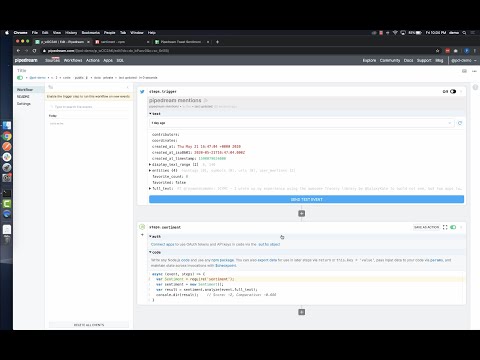What do you want to automate
with Google Sheets and Leadfeeder?
Prompt, edit and deploy AI agents that connect to Google Sheets, Leadfeeder and 3,000+ other apps in seconds.
Trusted by 1,000,000+ developers from startups to Fortune 500 companies
Popular Ways to Connect Google Sheets with Leadfeeder#
Popular Google Sheets and Leadfeeder Triggers#
Popular Google Sheets and Leadfeeder Actions#
Add a single row of data to Google Sheets. Optionally insert the row at a specific index (e.g., row 2 to insert after headers, shifting existing data down). See the documentation
Add multiple rows of data to a Google Sheet. See the documentation
Get all values or values from a range of cells using A1 notation. See the documentation
Create conditional formatting with color scales or custom formulas. See the documentation
Overview of Google Sheets#
The Google Sheets API allows for the creation, reading, updating, and deletion of data within Google Sheets, enabling a robust platform for spreadsheet management and data manipulation. Through Pipedream, you can craft serverless workflows that respond to various triggers, such as webhook events, emails, or scheduled times, to interact with Google Sheets. This synergy can automate reporting, synchronize data across applications, manage inventory, track leads in a CRM, or even conduct survey analysis by updating and retrieving sheet data on the fly.
Connect Google Sheets#
import { axios } from "@pipedream/platform"
export default defineComponent({
props: {
google_sheets: {
type: "app",
app: "google_sheets",
}
},
async run({steps, $}) {
return await axios($, {
url: `https://www.googleapis.com/oauth2/v1/userinfo`,
headers: {
Authorization: `Bearer ${this.google_sheets.$auth.oauth_access_token}`,
},
})
},
})
Overview of Leadfeeder#
Leadfeeder is a tool that reveals the companies visiting your website and how they interact with your content. By harnessing the power of the Leadfeeder API on Pipedream, you can automate the process of capturing lead data and integrating it directly into your sales and marketing workflows. This can range from enriching CRM records to triggering custom email campaigns based on visitor behavior, enabling a more dynamic and responsive engagement with potential customers.
Connect Leadfeeder#
import { axios } from "@pipedream/platform"
export default defineComponent({
props: {
leadfeeder: {
type: "app",
app: "leadfeeder",
}
},
async run({steps, $}) {
return await axios($, {
url: `https://api.leadfeeder.com/accounts`,
headers: {
"Authorization": `Token ${this.leadfeeder.$auth.api_token}`,
},
})
},
})
Related Videos#



Community Posts#


